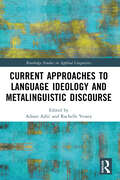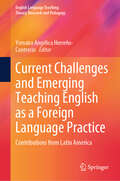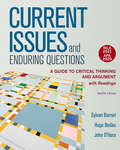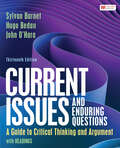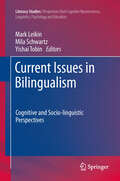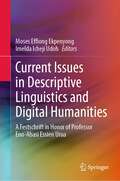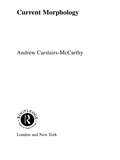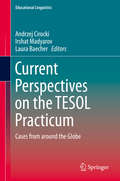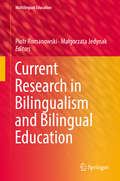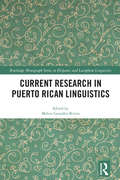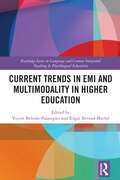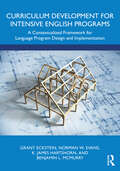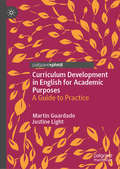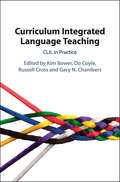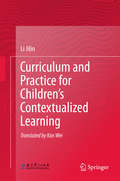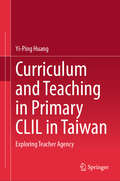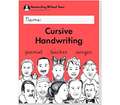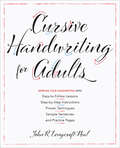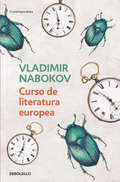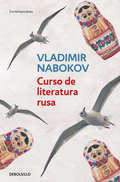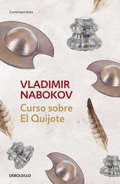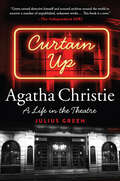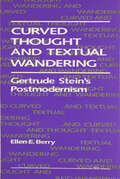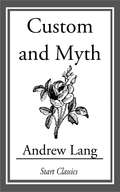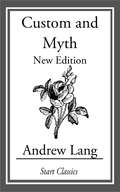- Table View
- List View
Current Approaches to Language Ideology and Metalinguistic Discourse (Routledge Studies in Applied Linguistics)
by Rachelle Vessey Adnan AjšićThis collection brings together research on cutting-edge developments at the intersection of language ideology and metalinguistic discourse, showcasing the potential of diverse approaches.With interest in language ideology and metalinguistic discourse growing, numerous qualitative and quantitative approaches have been established but have often resulted in a siloing of methods. Despite methodological advances, research on language ideology and metalinguistic discourse often relies on either qualitative methods (e.g., ethnography, content analysis) or traditional corpus linguistic techniques (e.g., concordance, collocation), with limited overlap between these “camps,” a division which has hindered a comprehensive understanding of the field. The book makes the case for bridging this gap by exploring the overlap between different approaches, demonstrating the nuanced insights a mixed methods perspective can provide. Featuring a wide range of applications across domains such as education, policy, minorities, traditional and social media, popular culture, and literature, the volume highlights the potential of integrating diverse methods. An afterword by Tommaso Milani ties these strands together, offering a forward-looking view of the field and potential directions for further research.This book will appeal to students and scholars in applied linguistics, language and education, and sociolinguistics.
Current Challenges and Emerging Teaching English as a Foreign Language Practice: Contributions from Latin America (English Language Teaching: Theory, Research and Pedagogy)
by Yomaira Angélica Herreño-ContrerasThis book brings together contributions on current challenges in Teaching English as a Foreign Language (TEFL) in Latin America. It examines various issues related to two areas within TEFL: first, in-class activities and innovative approaches, focusing on the development of intercultural competence, technology-based teaching and learning practices, grammar learning and digital life and its repercussions in English learning. Second, teacher education and professional development, analyzing aspects such as source-based writing skills, Lingua Franca and World Englishes, post-pandemic face-to-face instruction and literature in English as a Foreign Language (EFL) Teacher Education Programs along with studies on job satisfaction, attrition and professional identity. Specifically, the chapters provide an overview of the EFL teacher and classroom in Latin America, and the demands, benefits and drawbacks observed in this sociocultural context. Each chapter also includes meaningful views from a Latin American context and contributes to the development of better EFL teaching and learning practices worldwide. This book is a useful reference for scholars, researchers, and educators who focus on EFL teaching and learning at any educational level in Latin America. It is also a helpful resource for trainee teachers delving further into their fields.
Current Issues and Enduring Questions with 2020 APA and 2021 MLA Updates: A Guide to Critical Thinking and Argument, with Readings
by John O'Hara Sylvan Barnet Hugo BedauThis ebook has been updated to provide you with the latest guidance on documenting sources in MLA style and follows the guidelines set forth in the MLA Handbook, 9th edition (April 2021).Sorting through popular opinions, long-standing beliefs, media storms, and academic research can be daunting. Current Issues and Enduring Questions will introduce you to topics that are worth arguing about while also equipping you with the strategies necessary to think critically about issues, evaluate multiple perspectives, choose an approach, and write a compelling argument of your own.
Current Issues and Enduring Questions: A Guide to Critical Thinking and Argument, with Readings
by John O'Hara Sylvan Barnet Hugo BedauExpert guidance to help you think critically and write about important issues, sorting through popular opinions, long-standing beliefs, media storms, and academic research.
Current Issues in Bilingualism: Cognitive and Socio-linguistic Perspectives (Literacy Studies #5)
by Yishai Tobin Mila Schwartz Mark LeikinAs populations become more mobile, so interest grows in bi- and multilingualism, particularly in the context of education. This volume focuses on the singular situation in Israel, whose complex multiculturalism has Hebrew and Arabic as official languages, English as an academic and political language, and tongues such as Russian and Amharic spoken by immigrants. Presenting research on bi- and trilingualism in Israel from a multitude of perspectives, the book focuses on four aspects of multilingualism and literacy in Israel: Arabic-Hebrew bilingual education and Arabic literacy development; second-language Hebrew literacy among immigrant children; literacy in English as a second/third language; and adult bilingualism. Chapters dissect findings on immigrant youth education, language impairment in bilinguals, and neurocognitive features of bilingual language processing. Reflecting current trends, this volume integrates linguistics, sociology, education, cognitive science, and neuroscience.
Current Issues in Descriptive Linguistics and Digital Humanities: A Festschrift in Honor of Professor Eno-Abasi Essien Urua
by Moses Effiong Ekpenyong Imelda Icheji UdohThis book is a convergence of heterogeneous insights (from languages and literature, history, music, media and communications, computer science and information studies) which previously went their separate ways; now unified under a single framework for the purpose of preserving a unique heritage, the language. In a growing society like ours, description and documentation of human and scientific evidence/resources are improving. However, these resources have enjoyed cost-effective solutions for Western languages but are yet to flourish for African tone languages. By situating discussions around a universe of discourse, sufficient to engender cross-border interactions within the African context, this book shall break a dichotomy of challenges on adaptive processes required to unify resources to assist the development of modern solutions for the African domain.
Current Morphology (Linguistic Theory Guides)
by Andrew Carstairs-McCarthyThis book aims to provide a thorough and wide-ranging introduction to approaches to morphology in linguistic theory over the last twenty years. This comprehensive survey concentrates not only on the generative linguistic mainstream, but on approaches that are less fashionable or relatively unknown to English-speaking linguists, and highlights recent European, particularly German-speaking research.
Current Perspectives on the TESOL Practicum: Cases from around the Globe (Educational Linguistics #40)
by Laura Baecher Andrzej Cirocki Irshat MadyarovThis volume presents the current state of the TESOL (Teaching English to Speakers of Other Languages) practicum in 13 countries, including Armenia, Australia, Chile, Costa Rica, Croatia, England, Indonesia, Japan, Malta, Poland, South Korea, Sweden and the USA. Together the contributions offer a unique and contemporary view of how teachers are being educated and brought into the TESOL worldwide community of practice. This is the first publication to present diverse models/frameworks of the TESOL practicum from several international teaching contexts, focusing on exemplary practicum cases in the selected countries.
Current Research in Bilingualism and Bilingual Education (Multilingual Education #26)
by Piotr Romanowski Małgorzata JedynakThis book covers research topics in bilingual education, language policies, language contact, identity of bilingual speakers, early bilingualism, heritage languages, and more, and provides an overview of current theory, research and practice in the field of bilingualism. Each chapter is written by a specialist in the field. Part I focuses on the numerous and heterogeneous relations between languages as well as the implications arising from bilingual speech processing. In Part II, a series of contextualized studies on bilingual classrooms are presented, with diverse research designs applied in different educational settings being a key feature of these studies. Part III bridges theory and practice by offering an insight into mono- and multilingual school settings showcasing examples of educational institutions where bilingualism successfully soared and depicts the needs related to language education.
Current Research in Puerto Rican Linguistics (Routledge Studies in Hispanic and Lusophone Linguistics)
by Melvin Gonzalez-RiveraCurrent Research in Puerto Rican Linguistics is an edited collection of original contributions which explores the idiosyncratic grammatical properties of Puerto Rican Spanish. The book focuses on the structural aspects of linguistics, analysed with a variety of frameworks and methodological approaches, in order to presents the latest advances in the field of Puerto Rican and Caribbean linguistics. Current Research in Puerto Rican Linguistics brings together articles from researchers proposing new, challenging, and ground-breaking analyses on the nature of Spanish in Puerto Rico and Puerto Rican Spanish in the United States.
Current Trends in EMI and Multimodality in Higher Education (Routledge Series in Language and Content Integrated Teaching & Plurilingual Education)
by Vicent Beltrán-Palanques Edgar Bernad-MechóLooking at both English Medium Instruction (EMI) and multimodality in higher education, this edited volume bridges the gap between the two contexts by offering various new insights into fundamentals in multilingual education, EMI discourse and current teaching practices in internationalised contexts. Current demands in communication, especially in higher-education contexts, require examining EMI from a multimodal perspective with the aim of giving explicit attention to modern discourse practices.The contributors reflect on the principles guiding EMI and multimodality and their application in higher education using both practical examples and data-driven evidences. They discuss EMI multimodal discourse from an empirical perspective to unveil communicative practices in internationalised higher-education contexts; and exemplify classroom applications and ESP and EAP pedagogical practices that promote multimodal competence in higher education. The contributors provide solid theoretical foundations, key principles, research evidence and pedagogical implications that inform current methodologies and practices for EMI, ESP and EAP, as well as multimodality in higher education.This volume on EMI and multimodality in higher education will have broad appeal for researchers worldwide from various fields of expertise within education and applied linguistics.
Curriculum Development for Intensive English Programs: A Contextualized Framework for Language Program Design and Implementation
by Norman W. Evans Grant Eckstein K. James Hartshorn Benjamin L. McMurryThis book provides a comprehensive, contextualized approach to curriculum creation, design, development, and evaluation for Intensive English Programs. The book starts by guiding the reader through the important but often overlooked steps of contextualizing their current or future language curriculum to give decision makers the full picture of what their curriculum is intended to accomplish. Subsequent chapters break down the popular ADDIE (Analyze, Design, Develop, Implement, and Evaluate) model of curricular design into meaningful units focused on learner and context analysis, learning outcomes, assessments, materials, and implementation and evaluation processes. Accessible and engaging chapters include a variety of prompts, activities, and summaries to support learning and implementation. With instruction on how to build a language curriculum from scratch and insights for changing or improving an existing curriculum, this book is a key resource for instructors and program administrators in language programs as well as essential reading in TESOL methods and language curriculum design courses.
Curriculum Development in English for Academic Purposes: A Guide to Practice
by Martin Guardado Justine LightThis book introduces and explains a series of tools for curriculum renewal and revitalization in English for Academic Purposes (EAP) programs, based on the experiences of the authors in successfully implementing a new curriculum in a large EAP program in North America. The book focuses on the why and how of introducing curriculum change, while also engaging critically with the realities of day-to-day classroom practice and the important issue of teacher engagement. While maintaining a principles-driven approach, each chapter is also filled with tools, samples and case study examples, grounding the book in practice and making it an essential resource for language teachers, teacher trainers, and students on TESOL and related courses.
Curriculum Integrated Language Teaching: CLIL in Practice
by Gary N. ChambersDo your students struggle to see the point in learning a language other than English? Do you teach in an English-dominant setting? If so, this book is a 'must-read'. It offers international perspectives on CLIL, a revolutionary teaching approach where students study subjects, for example physics or history, in a language which is not their own. Informed by research carried out by the authors, it addresses the issues of developing CLIL in Anglophone contexts and shows how to implement this method of language learning successfully in the reality of the classroom. Through three key themes, sustainability, pedagogy and social justice, each author explores CLIL as a means of addressing the high levels of cultural diversity and socio-economic disparity in Anglophone-dominant settings. Authored by experts in the field, it offers a set of flexible teaching tools, which serve to combine language and content, ultimately enhancing the learning experience of students.
Curriculum and Practice for Children’s Contextualized Learning
by Li JilinBased on the authors' over 30 years of practical research experience, this book shows how situation curriculum design illustrates the new idea of "combining subject curricula with children's activities. " Particular attention is given to the subject curriculum, activity curriculum and the optimization of the situation. The curriculum is the most important vehicle of children's learning, and the primary school curriculum is vital to children's growth. Drawing on detailed case studies, the book highlights how situation curriculum design is currently affecting traditional Chinese primary schools.
Curriculum and Teaching in Primary CLIL in Taiwan: Exploring Teacher Agency
by Yi-Ping HuangThis book explores teacher agency within Content and Language Integrated Learning (CLIL), highlighting the roles of identity, emotion, discourse, and power. It demonstrates how teacher agency is shaped in curriculum leadership, course design, scaffolding, translanguaging, and cross-curricular collaboration. Focusing on public elementary schools in Taiwan, the first in Asia to adopt CLIL in compulsory education, this book proposes glocalized frameworks of teacher agency for curriculum and teaching in CLIL based on three qualitative case studies sponsored by the Ministry of Science and Technology, Taiwan (107-2410-H-004-116; 108-2410-H-004-099-MY2; 110-2410-H-004-045). This book is an essential reference for educators, researchers, and leaders involved in designing and implementing CLIL in EFL contexts across Asia.
Cursive Handwriting (Handwriting Without Tears)
by Jan Z. OlsenHandwriting Without Tears® by Learning Without Tears
Cursive Handwriting for Adults: Improve Your Handwriting
by John R. Longcraft-NealA fun guidebook for adults looking to relearn the beautiful art of cursive handwriting.In this type, tap and swipe world, you have few opportunities to write in cursive. As a result, your skills diminish. Then, when the critical moment arises and you need to personally write something in your own hand, the results are not very impressive. In fact, they’re embarrassingly bad. Written and designed specifically for an adult audience, this book’s program for relearning cursive is guaranteed to take your penmanship to a new level. You will relearn the strokes and techniques. The instructions are easy to follow but designed for adults, so they present the information in a more compelling way. You’ll find no “A is for apple” here. The exercises are geared specifically for a more mature audience to help you relearn and practice cursive handwriting in a fun and friendly way.
Curso de literatura europea (Vib Ser. #Vol. 227)
by Vladimir NabokovNabokov nos da las pautas para una lectura sagaz, heterodoxa y apasionante de grandes libros europeos Vladimir Nabokov, lejos de generalidades y teorizaciones, enseña a sus alumnos a "acariciar los detalles" y apasionarse con la lectura de Austen, Dickens, Stevenson, Proust, Flaubert, Joyce y Kakfa. Estas lecciones apasionadas y apasionantes, reconstruidas más tarde por Fredson Bowers a partir de los apuntes del maestro, son una ocasión única para releer a fondo las grandes novelas de la literatura europea. A lo largo de casi dos décadas, antes de alcanzar la celebridad con Lolita, Vladimir Nabokov impartió cursos de literatura en las universidades estadounidenses de Wellesley y Cornell, y sus clases han llegado a constituir una leyenda. No es frecuente que los estudiantes tengan por maestro a uno de los mejores autores del momento, pero tampoco lo es que un novelista añada a su talento una vocación didáctica tan nítiday eficaz, y tan libre de convencionalismos académicos. Reseña:«Unas privilegiadas, sustanciosas e irremplazables meditaciones sobre el arte de la ficción.»Michael Dira, The Washington Post
Curso de literatura rusa (Vib Ser. #Vol. 227)
by Vladimir NabokovLecciones magistrales en las que Nabokov, un genio de la literatura, indaga en la obra de los grandes escritores del pasado. Vladimir Nabokov, exiliado de su país y con pocas esperanzas de regresar algún día, estaba capacitado como nadie para introducir a sus alumnos en la obra de los grandes maestros rusos: Gógol, Turguéniev, Tolstói, Gorki, Dostoyevski o Chéjov. Esas lecciones apasionadas y polémicas, reconstruidas por Fredson Bowers a partir de los apuntes del escritor, son una ocasión única para asistir a sus clases y releer a fondo la literatura rusa del siglo XIX. A lo largo de casi dos décadas, antes de saltar a la fama con Lolita, Vladimir Nabokov impartió cursos de literatura en las universidades estadounidenses de Wellesley y Cornell, y sus clases se han vuelto legendarias. No es frecuente que los estudiantes tengan por maestro a uno de los mejores autores del momento, pero tampoco que un novelista añada a sutalento una vocación didáctica tan nítida y eficaz, y tan libre de convencionalismos académicos. La crítica ha dicho:«Instruye y estimula. Un gran escritor ruso habla de los grandes escritores rusos.»Anthony Burgess
Curso sobre El Quijote (Vib Ser. #Vol. 227)
by Vladimir NabokovLas provocadoras lecciones de un escritor genial sobre uno de los clásicos indiscutibles de la novela A lo largo de casi dos décadas, Vladimir Nabokov impartió cursos de literatura, que llegaron a convertirse en leyenda, en las universidades de Wellesley y Cornell. Fredson Bowers los reconstruyó a partir de los apuntes del maestro. Fredson Bowers los reconstruyó a partir de los apuntes del maestro, cuya inusual libertad de criterio de brilla especialmente en el análisis de la obra maestra de Cervantes. Nabokov no vacila en señalar fallos y tropiezos, ni en cargar contra tópicos contumaces, para resaltar los valores auténticos de la historia de don Quijote y Sancho. La crítica ha dicho:«Cuando de leer se trata, según Nabokov, se debían "notar y acariciar los detalles". Estas clases son un ejemplo concreto y maravilloso de ese principio.» Zadie Smith
Curtain Up: Agatha Christie: A Life in the Theatre
by Julius Green“[Julius] Green turned detective himself and scoured archives around the world to uncover a number of unpublished, unknown works . . . This book is a treat.” —Independent (UK)From the producer of numerous Agatha Christie stage plays comes the first book to examine the world’s bestselling mystery writer’s career and work as a playwright, published to commemorate her 125th birthday.Agatha Christie has long been revered around the world for her mysteries and the indelible characters she created, Miss Jane Marple and Hercule Poirot. In addition to her contributions as a novelist, this gifted writer was also an acclaimed playwright. Offering a unique, in-depth look at her work for the stage, Curtain Up analyzes her plays and features excerpts from Agatha Christie’s correspondences, notebooks, and several unpublished and unperformed scripts quoted from for the first time.Meticulously researched, peppered with groundbreaking discoveries—including a detaile discussion of her only play to premiere in America—Curtain Up sheds new light on Christie’s artistry and adds a fascinating layer to her remarkable story.
Curved Thought and Textual Wandering: Gertrude Stein's Postmodernism
by Ellen E. BerryThis wide-ranging and provocative study traces Gertrude Stein's production of avant-garde texts that radically disrupted traditional notions of how fiction should be defined, valued, and read. The book combines feminist and postmodern perspectives to illuminate new facets of Stein’s novels and to situate them within an expanded definition of the postmodern. The author argues that if we fail to consider the contexts within which postmodern innovations occur, and if we subsume all formal disruptions under a generalized postmodern mode, we obscure important differences among authors and distort the notion of the postmodern itself.The study expands our understanding of Stein as a novelist and a narrative theorist, repositions her work within a revised notion of literary history, and thus clarifies points of relation and divergence between modernism and postmodernism. It also assists in the historicizing of the postmodern literary emergence by insisting on the centrality of gender as a category of analysis. Finally, it argues for the importance of constructing definitions of postmodernism that will allow space to consider the complexity and diversity of its cultural practices. Curved Thought and Textual Wandering will be welcomed by scholars of modernism, of Gertrude Stein, and of feminist and narrative theory and postmodern culture.
Custom and Myth
by Andrew LangAndrew Lang (1844-1912) was a prolific Scots man of letters, a poet, novelist, literary critic and contributor to anthropology. He now is best known as the collector of folk and fairy tales. He was educated at the Edinburgh Academy, St Andrews University and at Balliol College, Oxford. As a journalist, poet, critic and historian, he soon made a reputation as one of the ablest and most versatile writers of the day. Lang was one of the founders of the study of "Psychical Research," and his other writings on anthropology include The Book of Dreams and Ghosts (1897), Magic and Religion (1901) and The Secret of the Totem (1905). He was a Homeric scholar of conservative views. Other works include Homer and the Epic (1893); a prose translation of The Homeric Hymns (1899), with literary and mythological essays in which he draws parallels between Greek myths and other mythologies; and Homer and his Age (1906). He also wrote Ballades in Blue China (1880) and Rhymes la Mode (1884).
Custom and Myth: New Edition
by Andrew LangAndrew Lang (1844-1912) was a prolific Scots man of letters, a poet, novelist, literary critic and contributor to anthropology. He now is best known as the collector of folk and fairy tales. He was educated at the Edinburgh Academy, St Andrews University and at Balliol College, Oxford. As a journalist, poet, critic and historian, he soon made a reputation as one of the ablest and most versatile writers of the day. Lang was one of the founders of the study of "Psychical Research," and his other writings on anthropology include The Book of Dreams and Ghosts (1897), Magic and Religion (1901) and The Secret of the Totem (1905). He was a Homeric scholar of conservative views. Other works include Homer and the Epic (1893); a prose translation of The Homeric Hymns (1899), with literary and mythological essays in which he draws parallels between Greek myths and other mythologies; and Homer and his Age (1906). He also wrote Ballades in Blue China (1880) and Rhymes la Mode (1884).
